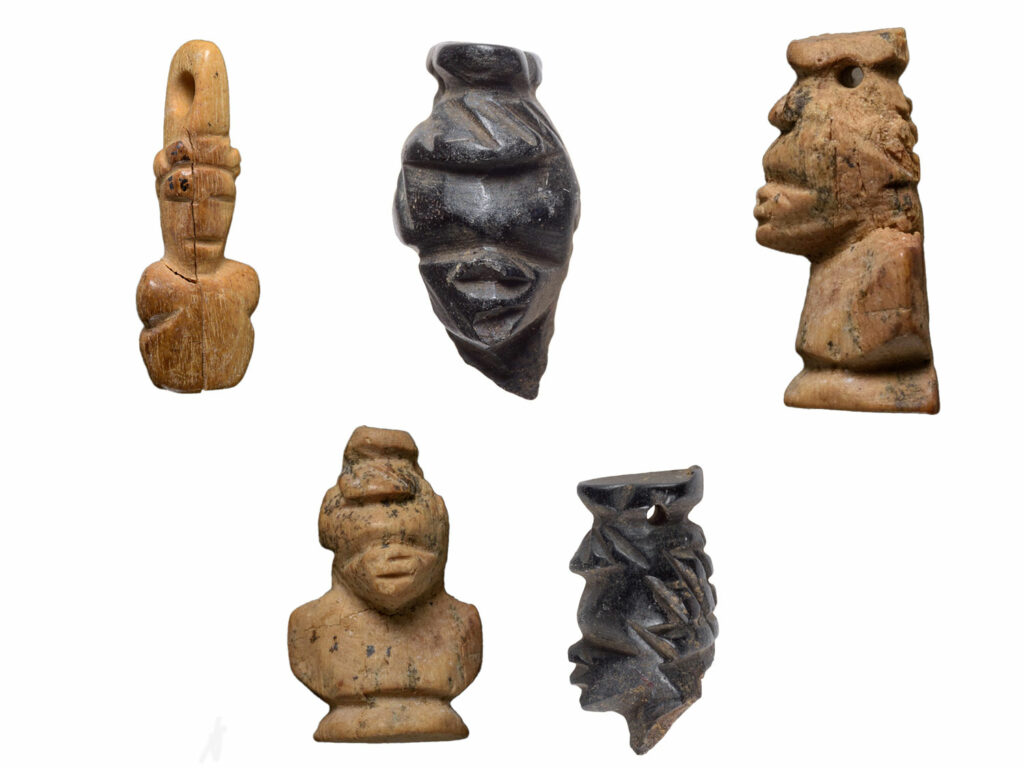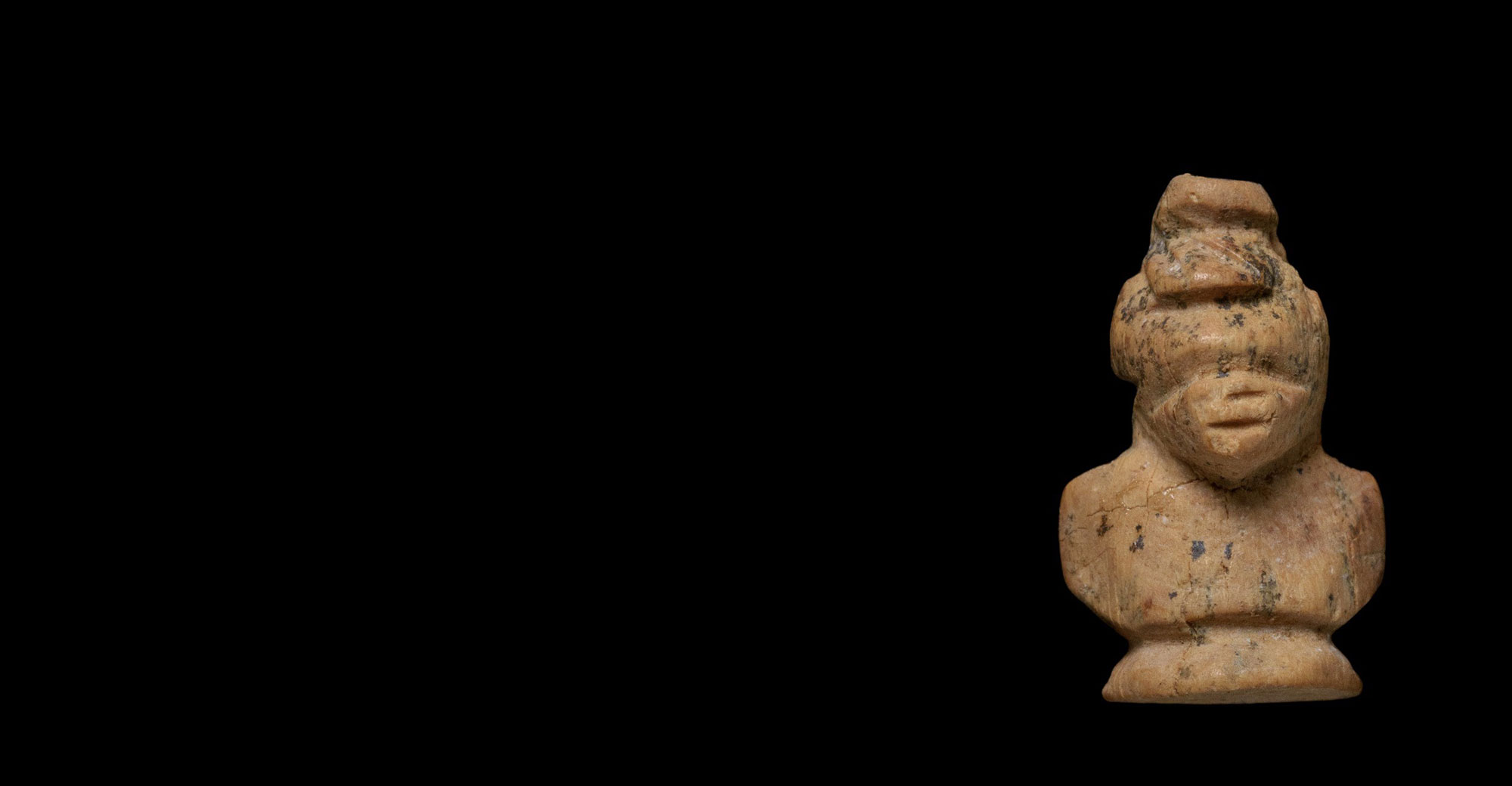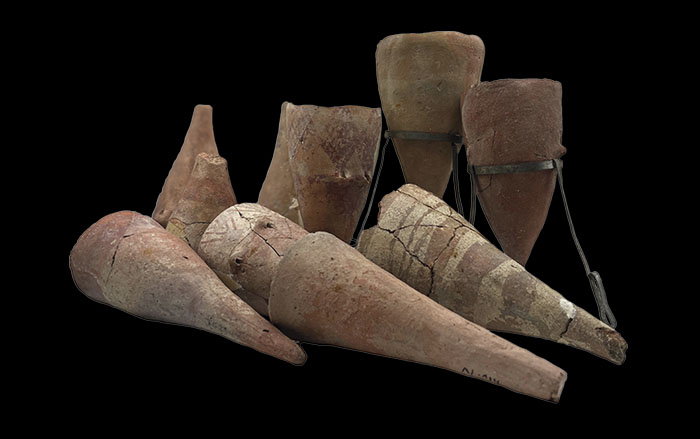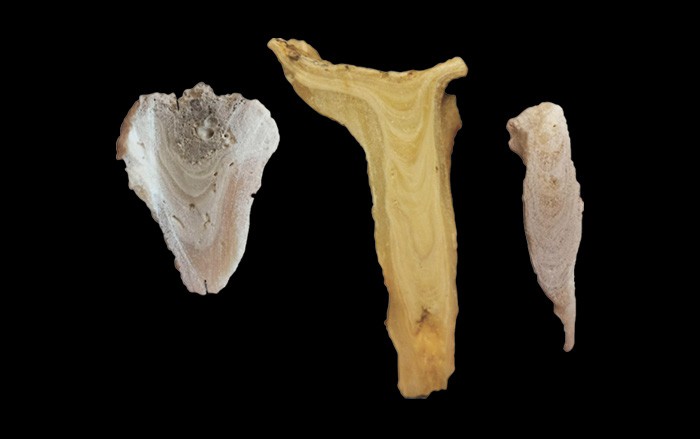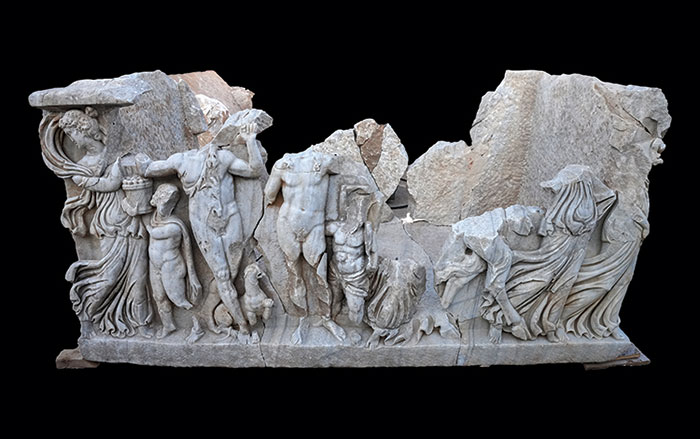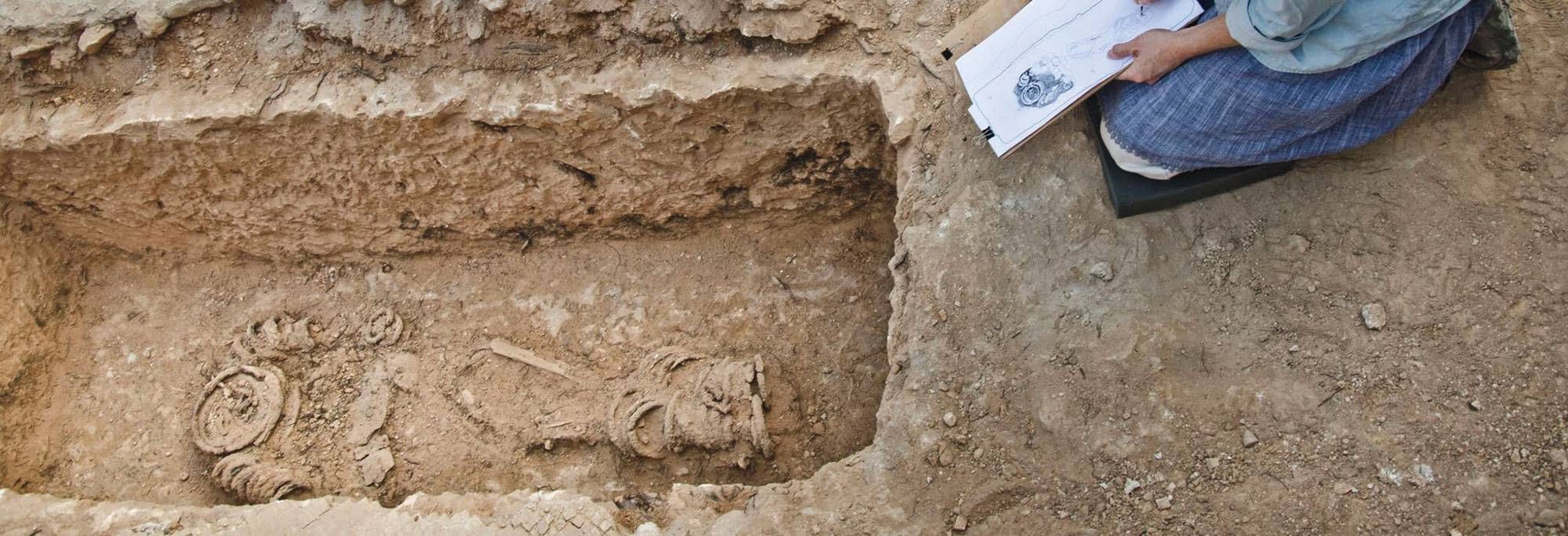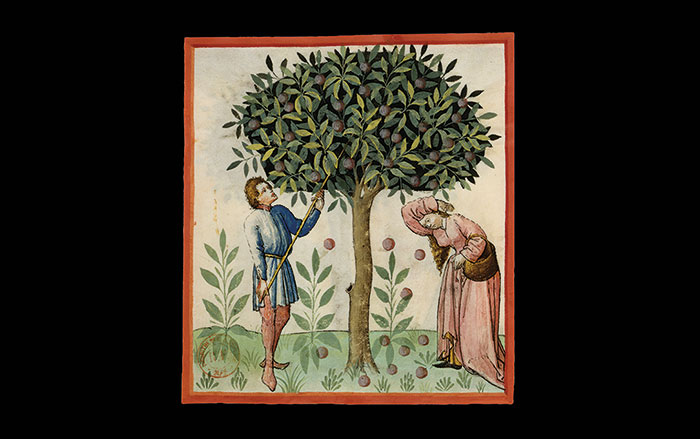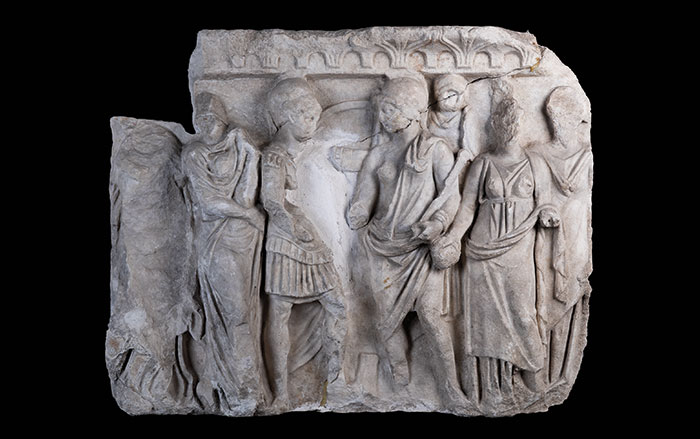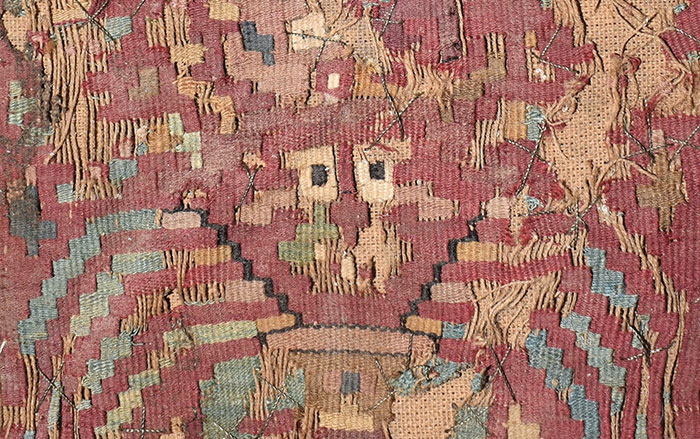TEL MALHATA, ISRAEL—Haaretz reports that archaeologists uncovered rare and somewhat perplexing figurines from two 1,500-year-old Christian burials at the site of Tel Malhata in the Negev Desert. The discovery was made during salvage excavations on the grounds of the Nevatim airbase, where previous archaeological work has revealed a rich history of human occupation from the Bronze Age through the Byzantine period. During the latest excavations, teams located some 155 tombs, but two burials contained objects different from anything else found at the site—bone and wooden figurines with facial features resembling Africans. Two of them were carved from ebony, a rare material found in southern India and Sri Lanka. These had been carefully placed in one grave containing the remains of a woman and a child, and in a second burial of another woman. Researchers think that the two women and the child may have been early Christian immigrants from Ethiopia who moved to the site between the fourth and the seventh century a.d. The objects have small perforations indicating that they were likely worn around the neck as pendants. These may have served as small mementos from home or possibly representations of ancestors. For more on archaeology in the Negev, go to "Side by Side."
